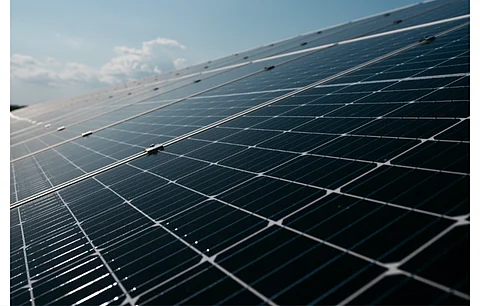

In what can be termed as the first high profile solar project getting negatively impacted by the Indian government's impending Basic Customs Duty (BCD), Norway's Scatec has put on hold a 900 MW project, its maiden solar facility in the country with ACME Solar.
While sharing its financial results for 2021, Scatec announced, "Scatec and ACME have decided to put the 900 MW project in India on hold due to lack of supply of domestic solar panels and a 40% import duty on solar panels to be imposed from April 1, 2022. Due to the above, the project has been moved from backlog to pipeline."
Scatec announced its foray into India's solar space in June 2021, in partnership with local developer ACME Solar in the form of a 900 MW PV project worth $400 million, located in Rajasthan. If it had proceeded as planned, the facility was scheduled to come online in 2022 (see Scatec Forays Into India in Partnership With ACME).
For the background, India will be imposing 25% BCD on solar cells and 40% for solar modules being imported into the country with effect from April 1, 2022 with a view to support domestic solar module production and cut down on its dependence on China (see India Imposes Basic Customs Duty On Cells & Modules).
Project developers in India have been appealing the government to extend the deadline of BCD imposition in the view of missing sufficient solar PV production capacity with domestic players. Establishing the capacity needed to support such a huge target is definitely going to take time to come up, but the administration seems firm on its commitment (see India PV News Snippets).
Speaking to analysts, Scatec CEO Raymond Carlsen explained that there is a gap between prices of modules from China and the expected price level of panels produced by local manufacturers in India. Over time, the cost of modules produced in India should be at the same level as in China, but till that happens, the company said it is taking a prudent approach for the time being.
India has a target to reach 280 GW of installed solar power capacity by 2030 for which it is encouraging and incentivizing manufacturers to set up fully integrated PV manufacturing value chain, however, it is heavily behind on its 100 GW target by 2022. Recently, the Ministry of Finance increased the budget for the government's Production Linked Incentive (PLI) Scheme for solar to INR 240 billion (see Energy Transition On India's Agenda In Budget).
.png?w=50&fm=png)